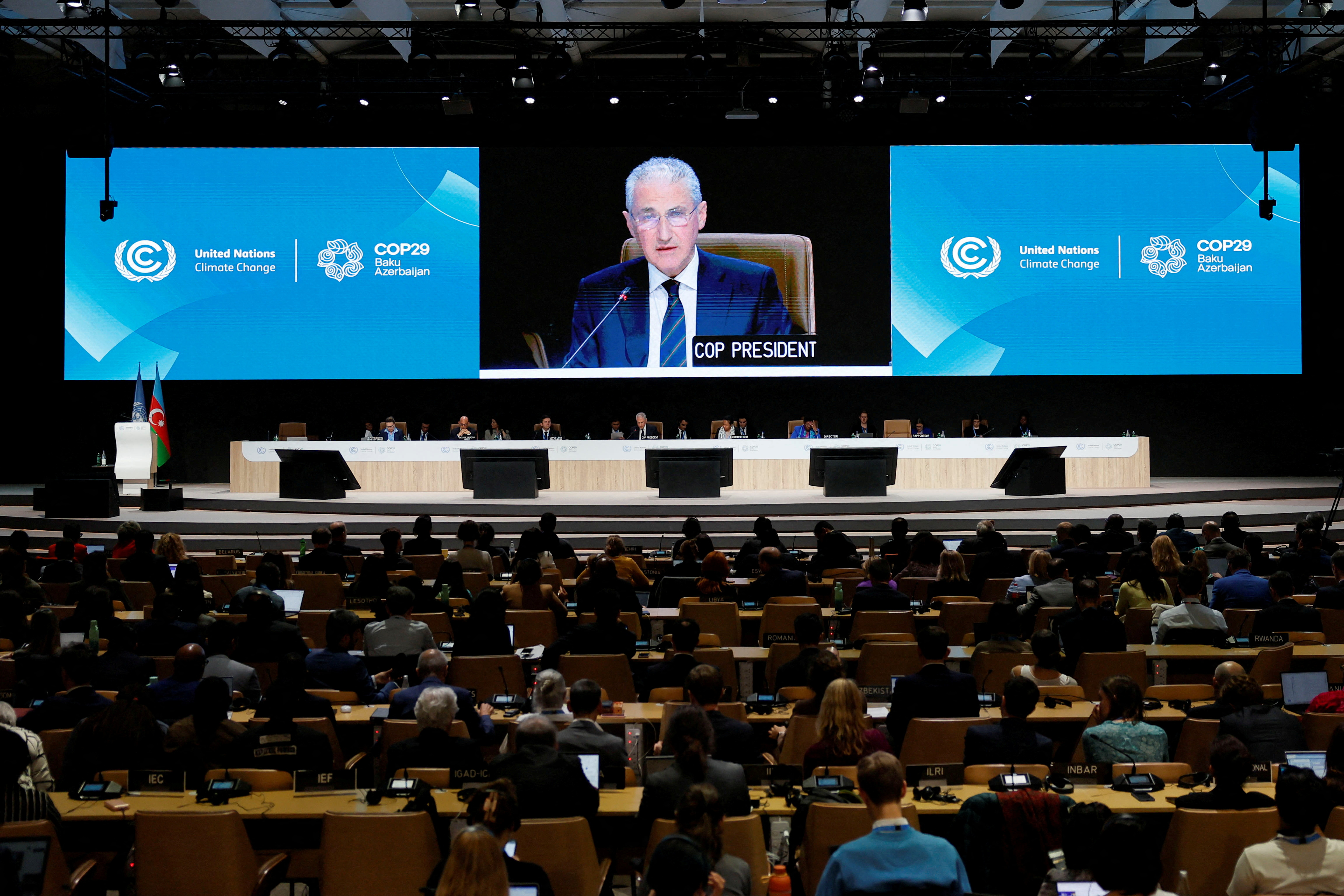



At COP29 in Baku, Azerbaijan, held in November 2024, world leaders gathered to address the pressing climate crisis and aimed to limit global temperature rise to below 1.5°C. A significant outcome of the conference was the commitment from developed nations to increase climate financing to $300 billion annually by 2035 for vulnerable countries, a response to the urgent need for support in combating climate impacts [e0d439f8][4931787f].
Despite these commitments, COP29 faced criticism for failing to reach a consensus on the complete phase-out of fossil fuels, a critical step needed to mitigate climate change effectively. The lack of a robust agreement on this issue has raised concerns among environmental advocates and developing nations, who argue that without a clear path to eliminate fossil fuel dependency, the goals set forth will be difficult to achieve [e0d439f8][19378c5d].
Additionally, countries were encouraged to submit more ambitious emission reduction plans by 2030, reflecting a growing recognition of the need for urgent action. For instance, Cyprus announced an increase in its greenhouse gas emissions reduction targets from -24% to -32% by 2030, demonstrating a commitment to more aggressive climate action [e0d439f8].
The discussions at COP29 also highlighted the connection between climate change and public health, emphasizing that the decisions made at such summits have far-reaching implications for societal well-being and energy costs [e0d439f8]. As the world grapples with the realities of climate change, individuals are encouraged to contribute by reducing waste and supporting sustainable practices, reinforcing the idea that combating climate change is a collective responsibility [e0d439f8].
As the global community reflects on the outcomes of COP29, the urgency for a comprehensive approach to phasing out fossil fuels remains a central theme, with many advocating for stronger commitments in future negotiations to ensure that the climate crisis is addressed effectively [4931787f][778be8e7].